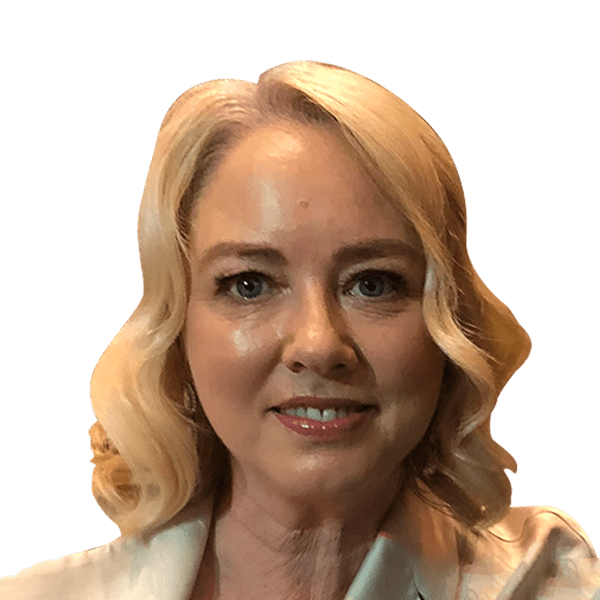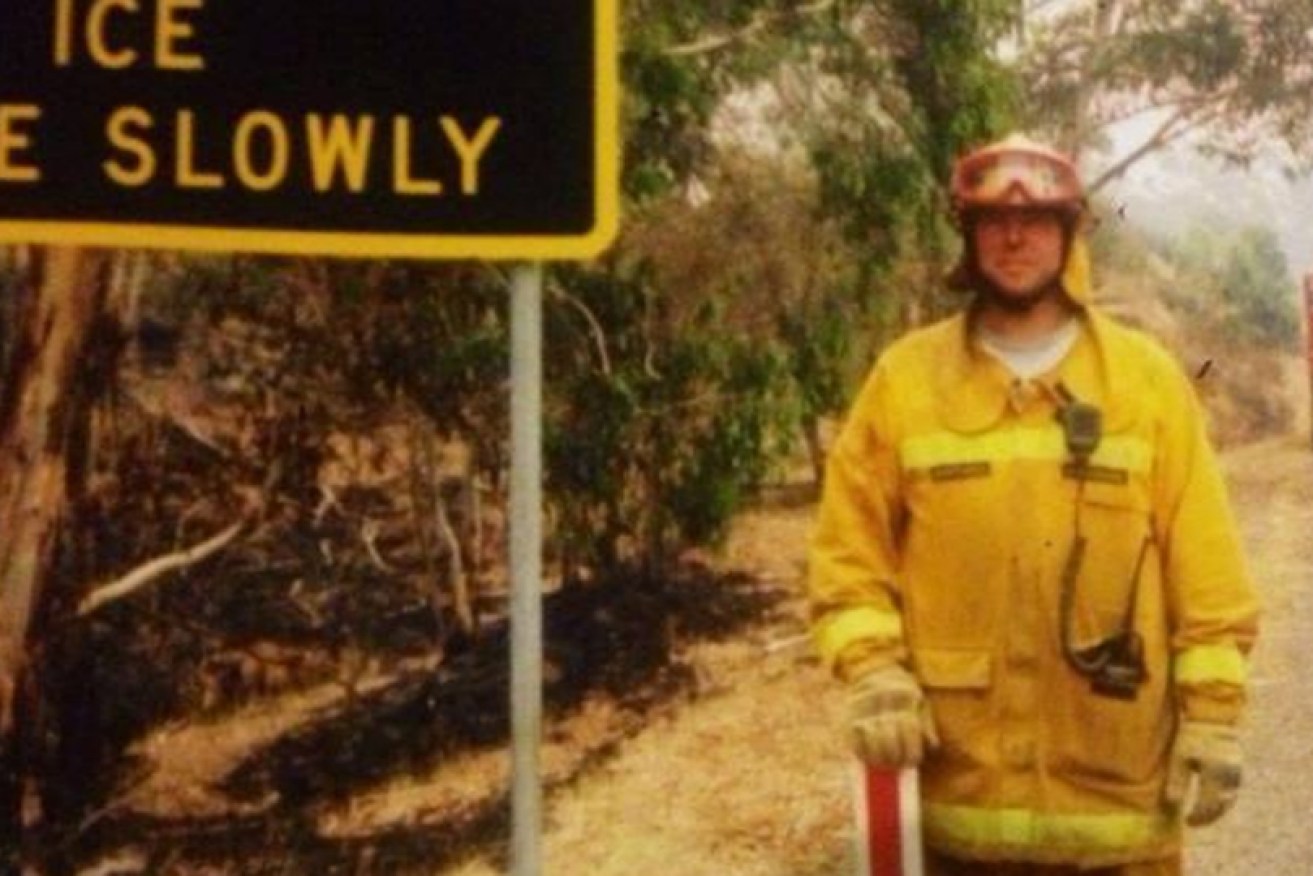‘I am in hell’: The tragic story of Black Saturday’s iconic hero firefighter


Brad Waterhouse (near a sign warning of ice on the roads) after the Black Saturday inferno. Photo: Facebook
Brad Waterhouse was woken by his pager about 7am on Saturday February 7, 2009. As captain of the Maryknoll CFA in Gippsland in Victoria’s east, the 34-year-old scrambled fast to the station to drive his tanker and crew to nearby Labertouche.
In the tiny town with a population of about 500, they were faced with an inferno. “It was the biggest [fire] I’ve ever seen in my life,” Brad, who joined the CFA in 1998, told Who magazine in 2010.
“The flames were 40 metres above the trees and the noise was like a freight train. The north wind was absolutely howling.”
The wall of fire faced by Brad was just one front that decimated Victoria on what became known as Black Saturday. It’s a grim straightforward name for Australia’s worst natural disaster: by nightfall, 173 people were dead and more than 3500 homes, farms and businesses were lost.
A 2009 royal commission concluded it “will be many years before its effects dim”. Two separate class actions saw nearly $800 million in compensation paid to those still struggling years after Black Saturday.
A photo taken that day of Brad Waterhouse slumped outside a burnt house was published worldwide, and made the volunteer firefighter a reluctant poster boy for the CFA.
“It worried me that the focus was on me. It’s a team effort,” he said. “From the ladies who babysit our kids to the members who cook food, it’s a whole team who get those people to the fire.”

The Maryknoll truck heads to Labertouche on Black Saturday. Photo: Facebook
That close-knit team in Maryknoll will be without their former captain for Black Saturday commemorations. In April 2017, Brad Waterhouse died of cancer at age 45.
Presented with a national service medal just before his death, he was farewelled with full brigade honours after making his own funeral arrangements – putting others before himself as usual, his mother Meryl Waterhouse told the Pakenham Gazette.
“He told us it couldn’t be at Easter, because all his mates would be up the bush,” Mrs Waterhouse said.
“We weren’t to have it in Maryknoll because there’s only one road and he said the police should not have to deal with the likely traffic issues.”
When Brad died, his sister Jodie Waterhouse was by his side, just as they’d leaned on each other on Black Saturday.
While he headed into the the teeth of the inferno, Jodie was roped in to look after Brad’s young daughters Bethany and Hannah.
“I remember him ringing me on that day about 3 o’clock from the fire front, saying ’I am in hell’,” she says.
“He had never seen anything like it. I asked if he was all right. He said he didn’t know and wasn’t sure if he was going to make it home.”

“It worried me that the focus was on me,” Mr Waterhouse said of the famous photo taken in Labertouche on Black Saturday. Photo: Facebook
Some time that night, he showed up “like a zombie” on his sister’s doorstep.
“I could smell the fire on him. He came to give the girls a kiss and then went back to the fires. He couldn’t stop. He had to get the job done. That was my brother to a T.”
Saving local houses – only one of 44 in a Labertouche street burned – was just part of the reason Brad was in the thick of the action.
“It was about saving his boys, his team, as well. [Later], he was so precise with his descriptions of everything on that day. I know he was having bad nightmares. He wasn’t sleeping, reliving it.”
Suffering post traumatic stress disorder, Brad “wouldn’t talk to anyone”, Jodie says. Black Saturday “changed who he was. His personality changed. I saw what the trauma did to him”.
In 2015, Brad stepped down as captain when he was diagnosed with stage-four bowel cancer and secondary tumours in his liver.
“I don’t think they picked it up early enough. He had 20 lymph nodes removed. It was everywhere,” Jodie says.
After treatment, Brad went into remission but in 2016 the cancer came back, in his stomach. Intensive chemotherapy seemed to be working, but the treatment had to be stopped when he developed a staph infection.
“That’s when the cancer went haywire. In December they found 18 brain tumours.”
As her brother was dying, drifting in and out, “he was having flashbacks, and it was all about the fire, about Black Saturday”, Jodie says.
“He was unconscious, lying there and then he’d say, ‘I’m on fire’. He would repeat it half an hour later. It speaks volumes to me about how much it affected him. His last day with us, and that is where he was.”
Fellow CFA firefighter Rob Mackie, 50, remembers his best friend as more than just a firefighter. He was a “good leader who was a friend to everyone”.

Jodie and Brad the night of his medal presentation, shortly before his death. Photo: Facebook
Jodie is still tagged on Facebook by people around the world “again and again” who post the famous image of her late brother.
“Only six weeks ago in the fires in America, they used Bradley’s photo again, saying some firefighters aren’t going to make it home for Christmas.
“Someone tagged me and said, ‘Here’s your brother’. It astounds me. When that photo first came to light, Bradley hated it. In time he was able to change his thinking – I am the voice of everyone.”
For Jodie, every Black Saturday anniversary is “just sad.” She pauses. “I remember just how good my brother was and how hard he worked in those few weeks and the length he went to to protect others.
“He drove towards these towering fires that day. I am so proud of him.”








